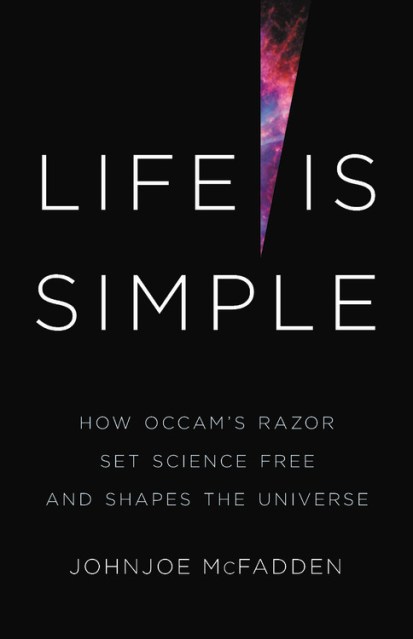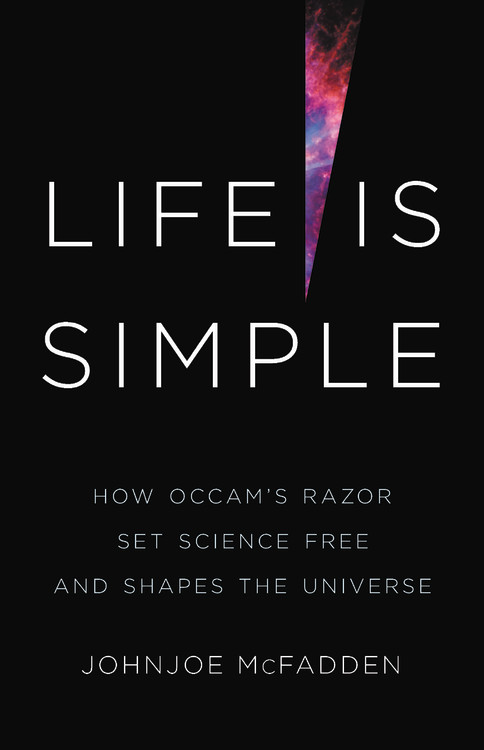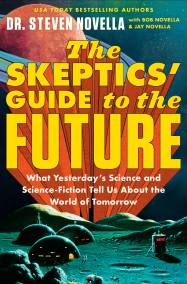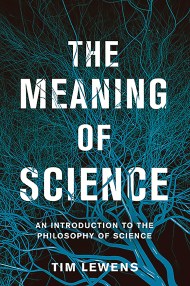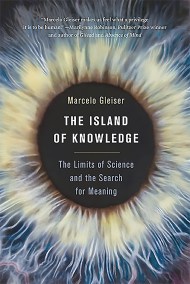
Life Is Simple
How Occam's Razor Set Science Free and Shapes the Universe
Contributors
Formats and Prices
Price
$32.00Price
$40.00 CADFormat
Format:
- Hardcover $32.00 $40.00 CAD
- ebook $18.99 $24.99 CAD
- Audiobook Download (Unabridged) $31.99
Also available from:
A biologist argues that simplicity is the guiding principle of the universe
Centuries ago, the principle of Ockham’s razor changed our world by showing simpler answers to be preferable and more often true. In Life Is Simple, scientist Johnjoe McFadden traces centuries of discoveries, taking us from a geocentric cosmos to quantum mechanics and DNA, arguing that simplicity has revealed profound answers to the greatest mysteries. This is no coincidence. From the laws that keep a ball in motion to those that govern evolution, simplicity, he claims, has shaped the universe itself. And in McFadden’s view, life could only have emerged by embracing maximal simplicity, making the fundamental law of the universe a cosmic form of natural selection that favors survival of the simplest. Recasting both the history of science and our universe’s origins, McFadden transforms our understanding of ourselves and our world.
-
"The 14th-century Franciscan friar William of Occam saw the importance of finding the simplest explanation for any phenomenon—the principle known as Occam’s Razor. Johnjoe McFadden explores this revolutionary approach to how the brain apprehends a complex universe, and its consequences across human history."Wall Street Journal
-
“Like a talented stylist or editor, courageous scientists have identified what is redundant ... and promptly scratched it out. McFadden’s book brings this observation to life using two millennia of scientific advancement, never castigating those who were wrong, but instead highlighting how they helped to shape the correct answers that came later.”Popular Mechanics
-
“In a conspiracy-laden world, McFadden’s argument, that simple explanations hold true, will appeal to historians and the scientifically minded.”Library Jounal
-
“thoroughly fascinating . . . breath-taking in its comprehensiveness and clarity”The Irish Times
-
If you are at all interested in the history of ideas, this is a fabulous read. Even after you’ve taken a few detours through other material to become better oriented in the controversy over what exactly he’s good for, William plausibly still stands as a daring, original figure who deserves a place in the Pantheon, and McFadden has done a great service in bringing the whole William and his influence to wider attention. In short, Life Is Simple is enthralling.Michael Blastland, Prospect (UK)
-
"The most sheerly enjoyable history of science of recent years."Simon Ings, The Spectator (UK)
-
“In LIFE IS SIMPLE, geneticist Johnjoe McFadden offers a breezy but well-researched look at how the razor has inspired some of science’s biggest ideas…his examples illustrate with persuasive power how ‘simplicity continues to present us with the most profound, enigmatic and sometimes unsettling insights’ into how the universe works.”Scientific American
-
“With flair and accessibility, McFadden walks readers through Occam’s many intellectually revolutionary ideas...A dense, provocative, and satisfying foray into the history of science.”Kirkus Reviews
-
“A compelling assessment of an idea many of us know but few deeply understand.”John Keogh, Booklist
-
“Recasting both the history of science and our universe's origins, McFadden transforms our understanding of ourselves and our world."Irish Tech News (UK)
-
“Occam’s razor, like Hobson’s choice and Schrödinger’s cat, is a phrase that’s entered the language. We know more or less what it means without necessarily knowing anything about its inventor or realising the immense power it has as a philosophical and scientific principle. LIFE IS SIMPLE describes brilliantly the context in which William of Occam lived and worked, and the transforming effect that his simple-seeming doctrine has had on the development of our understanding of nature and the universe."Philip Pullman, author of the His Dark Materials trilogy
-
“Original and profound.”Jim al-Khalili, author of The World According to Physics and Life on the Edge
-
“I found myself captured by the central premise: science, though perceived as complicated, is actually the pursuit of simplicity. The world is currently waking up to the complexities of science and its role in our world, and this book is an enlightening aid to that new understanding."Michael Brooks, author of 13 Things that Don’t Make Sense
-
“For all its technical triumphs, science does not take place in a cultural vacuum. McFadden’s wonderful and thoroughly-researched account of the history of ideas reveals how simplicity as an overarching principle weaves through all the sciences, telling us something profound about the nature of reality. His vivid descriptions and clear exposition make the subject come alive, and resonate with significance. This is one of the best science books I have read in a decade.”Paul Davies, Regents’ Professor of Physics at Arizona State University and author of What’s Eating the Universe?
-
"Johnjoe McFadden’s delightfully lucid book is itself a model of deceptive simplicity. The words glide off the page in this trenchant analysis of nature’s complexities that brings fresh life to centuries of scientific discovery and also points the way towards a clearer future."Patricia Fara, Emeritus Fellow of Clare College, Cambridge and award-winning author of Science: A Four Thousand Year History
-
“Life is Simple is a history that takes you through many centuries of understanding the changing language and philosophy of science. I highly recommend you buy it.”Robin Ince, broadcaster and author of The Importance of Being Interested
- On Sale
- Sep 28, 2021
- Page Count
- 384 pages
- Publisher
- Basic Books
- ISBN-13
- 9781541620445
Newsletter Signup
By clicking ‘Sign Up,’ I acknowledge that I have read and agree to Hachette Book Group’s Privacy Policy and Terms of Use
